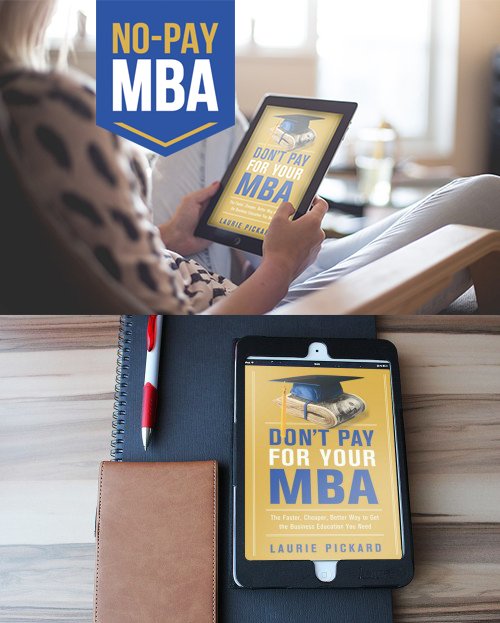A Complete Guide to Getting an MBA-Level Business Education at a Fraction of the Cost
Learn More

Laurie Pickard
Author of Don't Pay For Your MBA
Hi! I’m Laurie. I used massive open online courses (MOOCs) from platforms like Coursera and edX to get a business education equivalent to an MBA - for less than 1/100th the cost of a traditional MBA degree.
My journey with MOOC-based education began when I saw an opportunity to build the business education I had long desired without going into debt. For me, as an international development worker, MOOCs had the added benefit of being accessible from anywhere.
My book and the resources on this site are for anyone seeking a world-class business education using the free and low-cost tools of the internet. I hope you find them useful!
The No-Pay MBA Blog
Halfway through my MOOC MBA: Looking ahead to the semester and beyond
Will Universities Offer 100% MOOC Degrees? edX CEO Anant Agarwal Says Yes
Recently, I got the opportunity to speak with Anant Agarwal, CEO of edX. As the professor of edX’s first-ever MOOC and a proponent of access to education, Mr. Agarwal is one of the luminaries of online education. edX has over 3 million users from every country in the...
Unlocking the MOOC Marketplace: Can MOOCs Create Bottom-Line Value for Professionals and Employers?
Highlights of Fall Semester 2014
MBA Program or MOOCs? 4 tips before you apply
Assorted Thoughts on MOOC Education and My Favorite TED Talks
What Do Employers think of MOOC Education? A CEO’s Open Letter to MOOC MBA Students
How to Learn Management
What is the purpose of an MBA? I’m sorry to get all philosophical on you, but someone asked me the other day, and while I was able to rattle off a list of skills that I have learned since embarking on this journey (reading a balance sheet, calculating NPV, analyzing...







